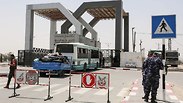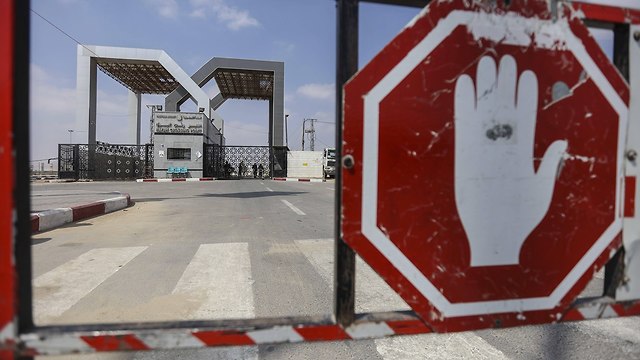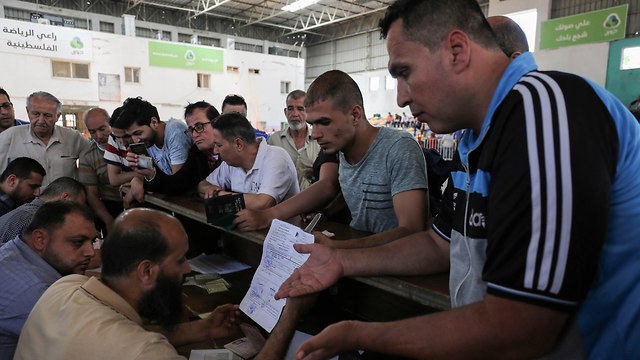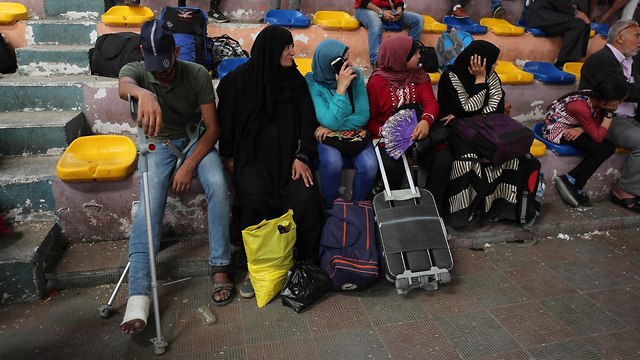
The Gaza Strip has been experiencing mass emigration in recent months, with almost half of those leaving the Palestinian enclave choosing not to return. Most of the Gazans who chose to emigrate are young and educated.
Some 36,000 people left Gaza between May and September of 2018, in the first four months after the permanent opening of the Rafah border crossing between the Strip and the Sinai Peninsula. Of that number, however, just 17,000 returned.
Leaving Gaza is expensive, particularly for the residents of the impoverished coastal enclave. Every day, anywhere from several dozen to several hundred people leave the Strip, depending on a quota set at the crossing by the Egyptian authorities. The demand is high, and the waiting list to leave is long.
Those wishing to cut short their wait must pay for a place on a special list, which is run by a private firm in Gaza that works with Egyptian border officers. The price for a place on this special list is $1,500—a fortune for the average resident of Gaza, where the unemployment rate is at 53 percent and the average daily wages are no more than NIS 62 ($16.85).
A Palestinian who recently emigrated from Gaza said that getting on the list was his only way out of the Strip. "I paid more than $1,000 and got on that list to save myself months of waiting. To get priority, you have to be either be a very sick person in need of treatment or a student. If you're neither—you have no other choice," he said.
Hassan Nassir, a Gaza resident in his 20s with a master's degree in economics, was one of those who chose to leave. "My contribution to my state and my people would always be my first priority, but the situation is difficult and Gaza's unclear future has led me to think of my life and those of my family. We deserve more than a life of poverty and suffering," Nassir said.
'Abbas is to blame'
It appears, however, that the most problematic and controversial emigration from Gaza is that by doctors. The health system in the Strip is permanently on the verge of collapse, and there is a serious shortage of doctors. The situation is being exacerbated as some doctors in the Strip choose to leave Gaza for the sake of their own future and that of their families.
According to reports, 82 doctors left the Strip between May and November of last year and haven't returned.
Muntasser Ismail, a surgeon who worked at the European Gaza Hospital and was considered one of the senior physicians in the Strip, took advantage of the opening of the Rafah crossing and emigrated a few months ago.
Ismail blames Palestinian President Mahmoud Abbas for the situation, due to his refusal to transfer funds to Gaza as part of his efforts to pressure the Hamas terror group that controls the enclave.
"The economic situation in the Strip has gotten worse because of the Palestinian Authority's sanctions, particularly the unjust decision that cut 60 percent of our wages. It left us with a salary too low to meet our needs," Ismail told the Arab media. "I could keep on living like this, but what drove me was the future I want for my children."
Emigrants normally leave Gaza and head to Cairo, where they either travel west by land through North Africa and then illegally reach Europe through the sea, or take a flight from Cairo to Turkey or Greece and from there make their way to Western Europe or North America.
The mass exodus of educated young Palestinians from the Strip has recently led Khalid Khaldi, a history professor at the Islamic University of Gaza, to call on authorities in the enclave to legally bar the departure of those with high and indispensable qualifications for fear they won't return.



















